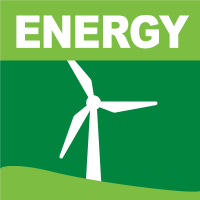DOE Issues Notice of Intent for New Fluid Power Research Program

Following a recent conference at the National Renewable Energy Laboratory (NREL), the Department of Energy (DOE) issued a Notice of Intent to issue a Funding Opportunity Announcement (FOA) for their new multi-million dollar fluid power research program for off-road vehicles.
The FOA, titled “Energy Efficiency R&D for Fluid-Power Systems in Off-Road Vehicles,” is to be issued by the Office of Energy Efficiency and Renewable Energy (EERE) on behalf of the Vehicle Technology Office (VTO).
Per the NOI, the objective of the FOA is to research technologies and innovations that can improve the energy efficiency of fluid power systems for commercial off-road where fluid power systems actuate most of the functions.
America’s off-road commercial industry relies heavily on the expertise of the fluid power industry to succeed and grow whether it be farming, industrial, mining, or construction. And while fluid power systems offer the necessary power density and ability to handle harsh environments over electric systems, there is room for improvement in system efficiency. Further research could decrease operating costs for vital national interests and industries.
The September 12th workshop at NREL covered early-stage research needs for fluid power systems in off-road vehicles. The agenda of the workshop was to understand and prioritize the research needs necessary to increase the energy efficiency and reduce emissions of mobile fluid power systems.
Key takeaways from the workshop thanks in part to the expert contributions of many in the fluid power and vehicle technology fields, summarized in this takeaway Event Summary and Key Observations, include the tabulated need for more research in several key areas in order to drive the industry forward:
Characterization of duty cycles
Definition and measurement of performance and efficiency
Development and definition of standardized equipment-level test methods
New technologies to increase power density of stored energy
New architectures to recover and apply stored energy
New technology to reduce fluid power system losses
New architectures to level and reduce the peak system load requirements
Fluid development and evaluation
Component design
Integration of fluid monitoring and advanced component design
Because the aforementioned workshop covered such a breadth of issues facing the mobile fluid power industry and the research efforts that lie ahead, we are only covering a bird’s eye view of the key takeaways gleaned from the wide ranging input of key stakeholders along the mobile fluid power research and development pathway.
If you are interested in any one or several of the key research needs summarized above, the event summary contains detailed breakdowns for each research area of need whether they concern new technologies and architecture, data needs, or the optimization of fluids, components, and integration.
As it pertains to their Notice of Intent to issue a Funding Opportunity Announcement, VTO suggests several relevant technologies for efficiency improvements including but not limited to “new system architectures, energy storage, engineered fluid properties, advanced materials, engine technologies, and hybridization.”
Eric Lanke, President and CEO of the National Fluid Power Association, spoke out positively on the development. “ This is a major new initiative for the fluid power industry. The academic and industry leadership of the Center for Compact and Efficient Fluid Power (CCEFP) were instrumental in creating this opportunity. Its success is a direct result of that unique organization and the NSF and industry funding it has received for the last twelve years. Many thanks to all who worked so hard to make this program a reality.”
EERE plans to issue the FOA this month via the EERE Exchange website: https://eereexchange.energy.gov/.
Applicants should register on the EERE exchange for official notification and information concerning the FOA. Applications will only be accepted via the exchange.




